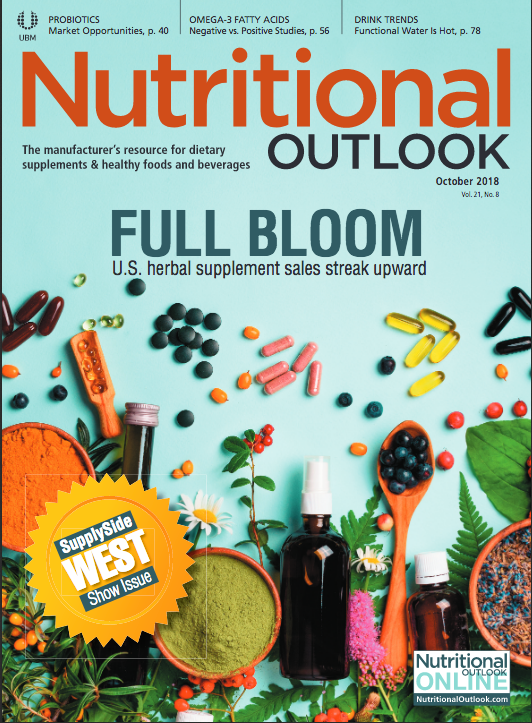Why are probiotics in the media crosshairs, and how can industry take control?
Probiotics have had a tough media run in recent months. Why now?
Photo © Shutterstock.com/Magi Bagi

Probiotics have had a tough media run in recent months. Why are probiotics in the crosshairs, and why now?
Among the negative news: 1) in June, a study in Clinical and Translational Gastroenterology (Rao et al.) linking probiotic use with “brain fogginess” as well as abdominal bloating, pain, and gas, 2) in August, an Annals of Internal Medicine review (Bafeta et al.) concluding that researchers are not doing a good enough job of harms reporting during probiotics studies and are limiting safety data that might be useful to other researchers, 3) in September, two studies published in Cell (Zmora et al.) questioning the efficacy of probiotics because a large portion of the probiotics supplemented in the study passed through the subjects’ digestive tracts.
Wading into the fray in September, Harvard Medical School assistant professor Pieter Cohen, MD, a longtime critic of the dietary supplements industry, wrote a JAMA Internal Medicine byline titled “Probiotic Safety-No Guarantees,” stating that “widespread use [of probiotics], particularly among people who are healthy, has greatly outpaced the science.”
I spoke to one of our editorial advisory board members, Duffy MacKay, ND, senior vice president, scientific and regulatory affairs for the Council for Responsible Nutrition (CRN; Washington, DC), about what he thinks about the Cohen piece as well as this wave of negative attention.
According to MacKay, Cohen’s piece shouldn’t be taken at face value or as an indication that the probiotics industry is the Wild West. For instance, Cohen states that FDA should require probiotic companies to state on their labels the specific bacterial strains in their products; however, MacKay points out, this is already a best practice that industry leaders have been pushing manufacturers to follow for years and that many responsible probiotic manufacturers already heed.
Cohen also states that better care must be taken “to ensure that mobile resistant genes”-antibiotic-resistant genes-“are not contained in the probiotics consumed by millions of people in the United States.” Again, this is something the probiotic industry would agree with, not argue against, MacKay says. He points out that many of the bacterial strains heavily used in the probiotics industry, like Lactobacillus acidophilus, have been present in the dairy industry for decades and have demonstrated no antibiotic resistance. Secondly, he says, FDA regulations rightly require that if companies are using new bacterial strains that have not been present in the food supply demonstrating safety and whose link to antibiotic resistance has not been fully examined, companies would and should file a new dietary ingredient (NDI) notification by law. “We need to protect public health, and we need to evaluate the safety of these strains before they’re introduced to the food supply,” MacKay says.
And in response to Cohen’s allegations that the success of the industry is largely powered by “hundreds of small studies whose results are spun as favorable...”? MacKay says: “I would disagree with Pieter wholeheartedly,” adding that “there is a very large evidence base for particular strains.”
Of course, the probiotics industry-like all industries-isn’t perfect, and there are some who act irresponsibly. MacKay says, “I have witnessed some overstating over preliminary evidence in some areas.” To that end, he says, “We need better enforcement both from the FTC and the FDA” to catch companies making unsubstantiated claims.
Why has there been so much probiotic criticism lately? It may just be part of a normal cycle, he says. Probiotics’ own market success and some major positive studies may now be triggering critics to pay more attention to the category. For instance, positive studies include a large-scale Cochrane Review in 2015 concluding that probiotic strains Lactobacillus rhamnosus and Saccharomyces boulardii help prevent antibiotic-associated diarrhea in children. Also, as more doctors prescribe the use of probiotics, “the medical community has been inundated with this non-drug product,” he says, which also will activate a subset of industry critics.
“I don’t think there’s a big, bad conspiracy out there driving this,” MacKay says. “When something becomes successful, then people start to research it more, and when there are contrarian findings, they get everyone’s attention and become press-worthy.”
Such is the situation that probiotic makers may find themselves in now. Negative attention should spur manufacturers to be even more cautious in how they produce and sell their products. “This is a callout to the probiotics industry,” he says. “If we want to keep this category growing, we have to button up our science and be willing to use the right strains and make the right claims.”
While industry may not have control over negative headlines, Neal Mercado, vice president of marketing and innovation for Designs for Health, maker of ProbioMed dietary supplements for healthcare professionals, says what industry can control is its ability to make these products responsibly and transparently.
“It is very difficult to draw any meaningful conclusions from the most recent trials that have been the subject of negative headlines, other than reiterating the importance of strain specificity, viability, and CFU quantities on efficacy,” he says. “Too often, researchers have used generic strains or have not properly reported strain IDs, and we know that different strains of the same species can have very different effects. We also know that the probiotic needs to be alive, viable, and of sufficient quantity to have an effect. That’s why Designs for Health believes that transparency is paramount to any quality probiotic formulation.”
Jennifer Grebow
Editor-in-Chief

Prinova acquires Aplinova to further increase its footprint in Latin America
April 7th 2025Prinova has recently announced the acquisition of Brazilian ingredients distributor Aplinova, which is a provider of specialty ingredients for a range of market segments that include food, beverage, supplements, and personal care.























